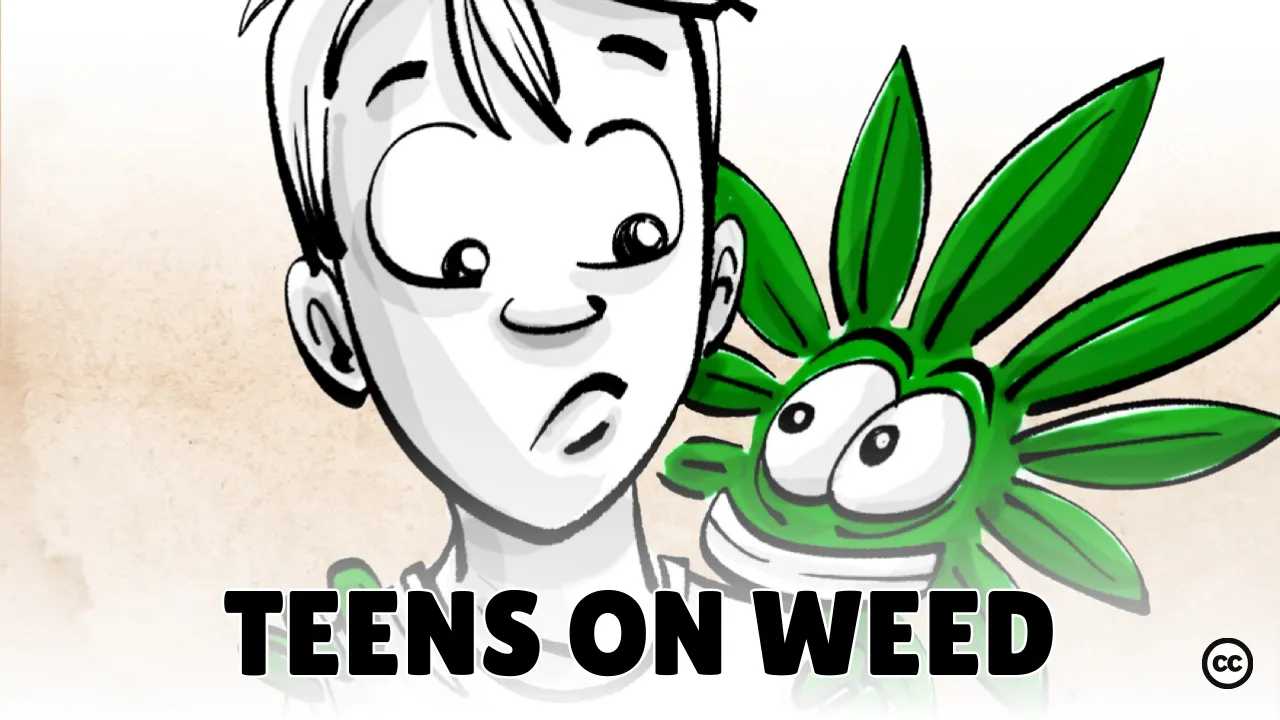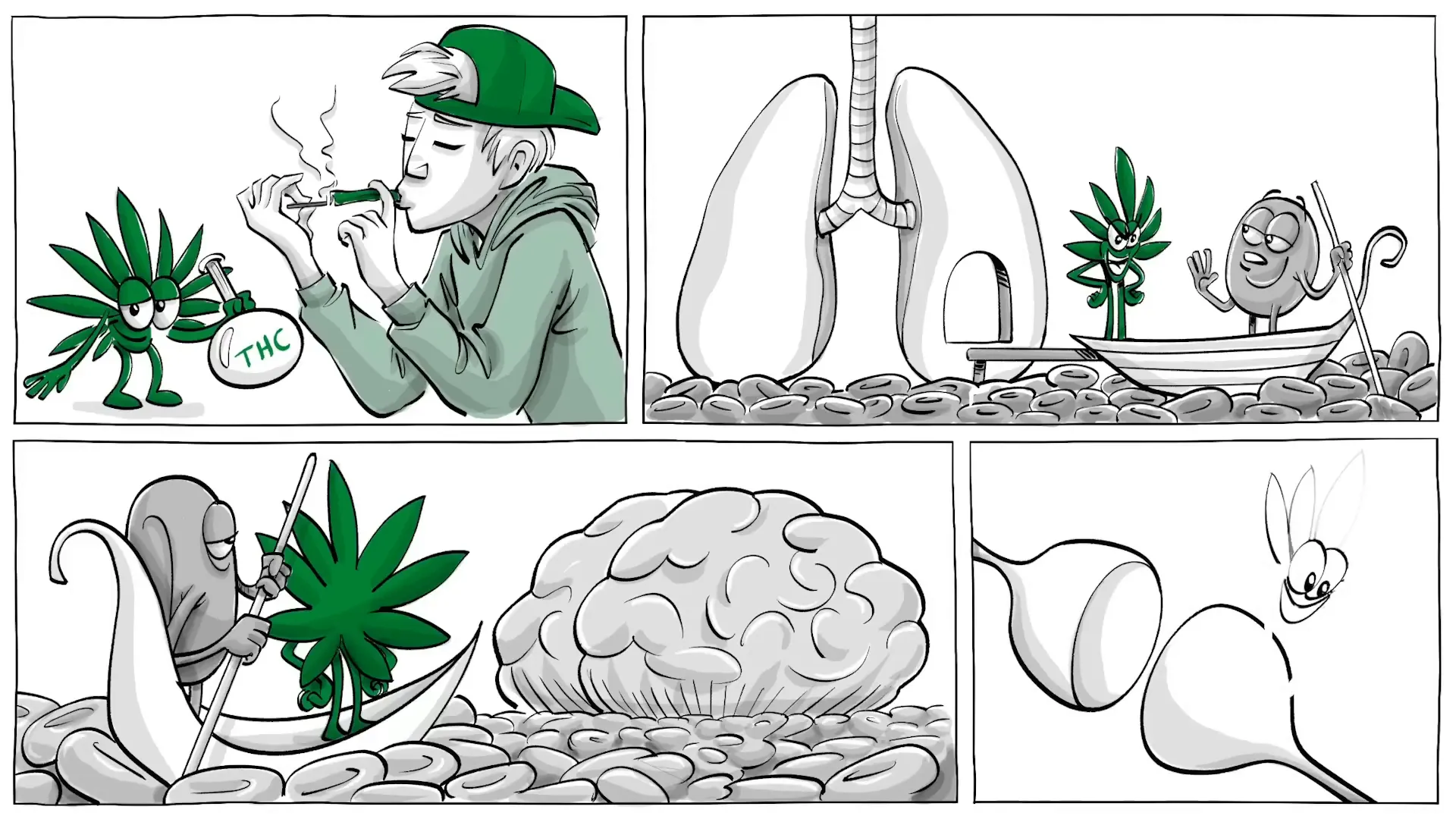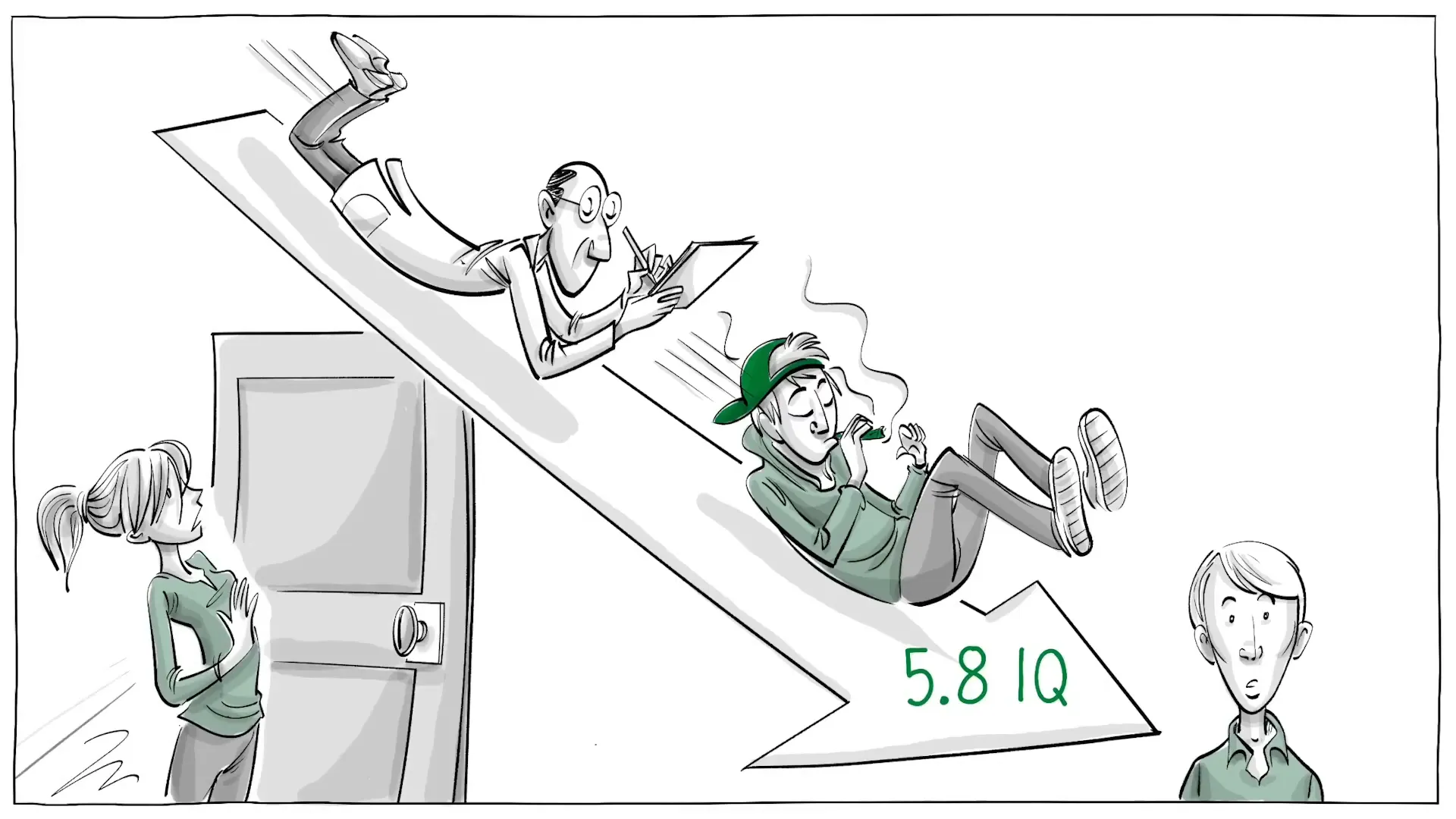Jan 4, 2025
The Effects of Weed on Teenage Brains

Introduction
When a person smokes cannabis, one of the plant’s chemicals known as THC passes from the lungs into the bloodstream. The THC is then carried by the blood to the brain, where it acts on specific cannabinoid receptors. These receptors are found in areas of the brain associated with concentration, thinking, time perception, coordination, memory, and sensory pleasures. The effects of THC activation in these areas are responsible for the “high” that people feel. But besides creating an altered state of mind, something else happens.

THC effect on brain
In the United States, according to a 2018 survey, 1 in 8 adolescents aged 12 to 17 consumed marijuana in the past year. In 12th grade, about 1 in 16 do so daily. So, what’s the problem? Even super smart people smoke, right? Let’s look at the effect of cannabis on a teenager's brain!
The brain's response to counter the effects of THC impairs its attention, its ability to remember, and its potential for learning. These effects can last up to several days. This would not be such a problem if our brain ran like a machine. But that’s not the case. The brain is a living organism — maybe the most precious one there is. In teenagers, that organism is still immature. It takes about 25 years for the human brain to be fully developed. This is why when teenagers and adults argue, they often come to different conclusions. There is a biological reason for that.
Adults have a fully developed prefrontal cortex, the part of the brain that is responsible for judgment and an awareness of long-term consequences. The cortex of teenagers is still growing. They are more influenced by their already matured limbic system, which responds to fears and emotions. If the developing brain is exposed to a lot of THC, the part responsible for controlling emotions may never reach its full potential. This can have long-term consequences and effects on one's measurable intelligence, learning, and judgment.
One study that followed 13-year-olds for 25 years found that those who regularly consume marijuana lose, on average, 5.8 IQ points by the time they reach adulthood. Since our average IQ is just 100, that is enough to shut the door to a good college or close the opportunity to work at a great company.

But that’s not all. There is also evidence that some teenagers who use cannabis are at higher risk of developing depression or even psychosis. A psychosis changes the way the brain processes information and causes you to lose touch with reality. You can see and hear things that aren't real and may completely lose your mind. In short, the high of cannabis comes with a multitude of side effects. Some might be fun, some might be healing, and some are potentially horrible — we don’t always know.

Adult vs Teenage brain
If you want to live life with the ultimate learning machine inside your head, you might want to wait until your mind is fully developed before trying weed.
What are your thoughts? Did you ever try cannabis as a teenager? And if so, do you think it did damage to your mind or not?
Conclusion
It's crucial to understand that the teenage brain is still a developing organ, and introducing substances like THC can have lasting impacts. Waiting until adulthood to experiment with cannabis might be the best choice for preserving cognitive function and emotional stability.
What do you think?
We invite you to reflect on your experiences and consider the broader implications of cannabis use among teenagers. It's a conversation worth having, especially as we continue to learn more about the effects of substances on developing minds.
Ending
Thank you for taking the time to learn about the effects of cannabis on teenage brains. Stay informed and make choices that support healthy development.
This article was created from the video The Effects of Weed on Teenage Brains with the help of AI. It was reviewed and edited by a human.



